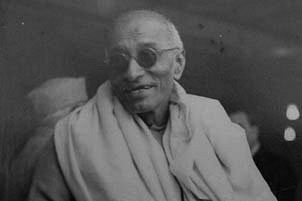From the archives
‘National’ And ‘Official’
- From the 1956 archives of Swarajya, C Rajagopalachari’s views on whether Hindi should be the national or official language of India

Rajaji
I have expressed myself frankly and publicly on the question of the ‘official’ language for all India. It is unnecessary to repeat my views on that question here.
Some people think that my objection to making Hindi the ‘official’ language of India is contrary to the views I held and ‘enforced’ when I was in charge of the Madras Government in 1937. This erroneous impression vitiates the criticism and the approval of both pro- and anti-Hindi protagonists.
Let me make it clear that even now I am, as before I was, for Hindi being made an important part of the students’ curriculum all over India. It is the language of a very large section of the people of India, of the majority, if we disregard small dialectical variations. It is indeed in a position to claim to be the ‘national’ language of India, even as Hinduism is the ‘national’ religion of India. Just as people belonging to all the various faiths prevalent in India ought to understand Hinduism and learn to respect it, if they wish to be good citizens of the motherland, the people speaking the various tongues prevalent in India ought to understand and respect Hindi, it being the language of the vast majority. But it would be improper to make Hinduism the ‘official’ religion of India as it would according to me be improper to make Hindi the ‘official’ language for India.
‘National’ goes with factual majority but ‘official’ in true democracy as distinguished from totalitarianism should not go with numerical majorities but with even-handed justice to all, to the smaller as well as to the bigger states and communities. What is ‘national’ need not always be ‘official’. Deepavali is a ‘national’ festival, but it is not an ‘official’ festival, although we may grant a number of holidays to suit all sections.
While I strongly protest against making Hindi the official language of India, I equally strongly recommend the inclusion of it in the school curriculum everywhere. English is compulsory in many European states on account of its importance. So also must Hindi be studied by people of all parts of India on account of its importance. All education is directed towards making the boys and girls good and complete citizens in India, therefore, Hindi must be part of everybody’s education. But this does not mean that the great injustice should be perpetrated of imposing Hindi as official language of the administration of India.
People may support this unjust proposal without fully realising its consequences. But the clear-sighted can see what great injustice and unconscionable waste it would involve. It would be contrary to the basic principle of planning which is the conservation of what we have without being misled by false sentiment.
It is hoped that whatever the Languages Commission may report, a just and wise decision will be taken that English should continue as the official medium for inter-state and Central affairs and that the provisions of the Constitution dealing with the subject will be suitably amended. The past history of education in India cannot be ignored in shaping our future. We can build justly and firmly on the strong foundation of history, but if we ignore hard facts and follow the mirage of unthinking prejudice, we shall come to grief. The best form of patriotism now is clear thinking, hard work and unselfish service, not running away with sentiment, ignoring the consequences of our acts on millions of people.
Support Swarajya's 50 Ground Reports Project & Sponsor A Story
Every general election Swarajya does a 50 ground reports project.
Aimed only at serious readers and those who appreciate the nuances of political undercurrents, the project provides a sense of India's electoral landscape. As you know, these reports are produced after considerable investment of travel, time and effort on the ground.
This time too we've kicked off the project in style and have covered over 30 constituencies already. If you're someone who appreciates such work and have enjoyed our coverage please consider sponsoring a ground report for just Rs 2999 to Rs 19,999 - it goes a long way in helping us produce more quality reportage.
You can also back this project by becoming a subscriber for as little as Rs 999 - so do click on this links and choose a plan that suits you and back us.
Click below to contribute.
Latest